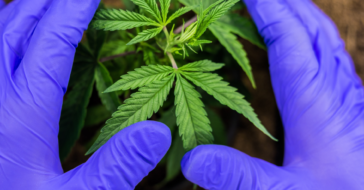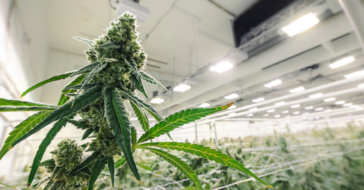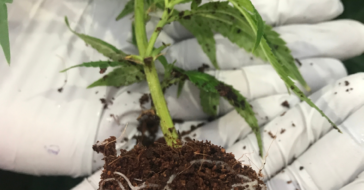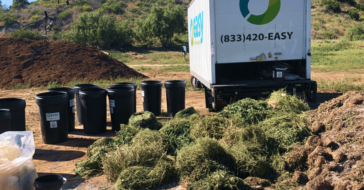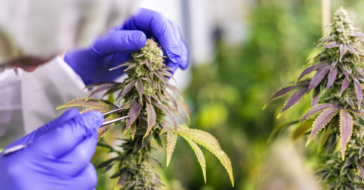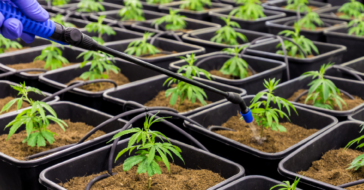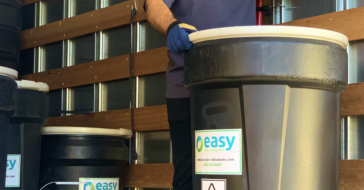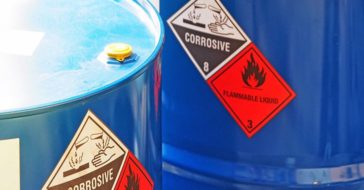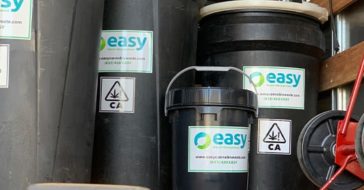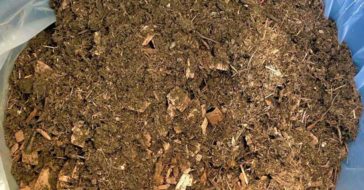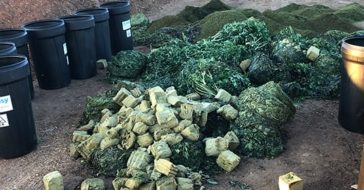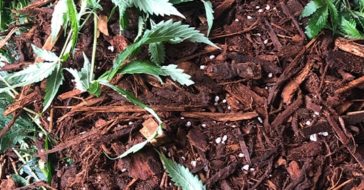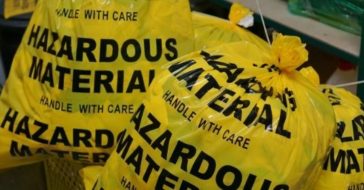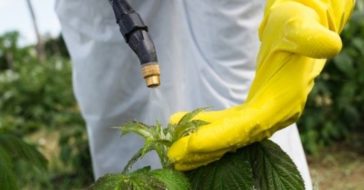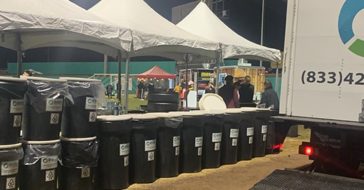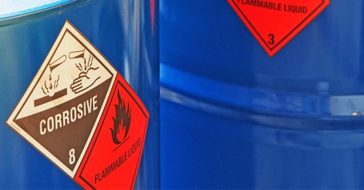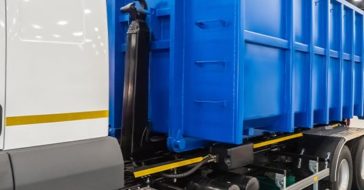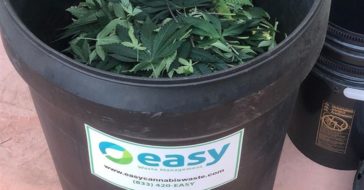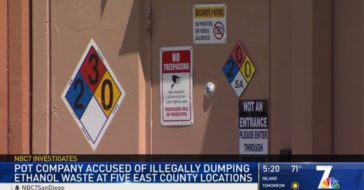Securing a cannabis license in California involves navigating a comprehensive process. From the initial steps of completing local permitting to the ongoing commitment of renewing your license annually, each stage is vital for the legal and smooth operation of your cannabis business.
Understanding and adhering to these steps not only ensures compliance with state regulations but also helps your business maintain a thriving presence in California’s cannabis market.
The California Department of Cannabis Control has outlined the steps you need to take to get your cannabis business up and running:
- Complete the local permitting process.
- Learn the requirements for your business.
- Gather the information you need to apply.
- Create a licensing system account.
- Complete your licensing application.
- Pay the application fee and submit it.
- Check your email regularly and answer questions.
- Pay your license fee.
- Post your license.
- Renew in one year.
Complete The Local Permitting Process
Numerous urban areas and counties have established regulations and licensing procedures for cannabis enterprises. In certain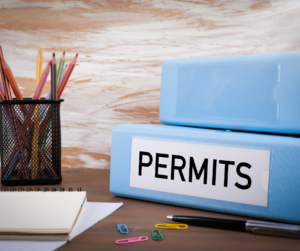 regions, the operation of cannabis businesses is strictly prohibited. That’s why it’s important as the first step you take to ensure the location of your business aligns with local regulations that permit commercial cannabis activities.
regions, the operation of cannabis businesses is strictly prohibited. That’s why it’s important as the first step you take to ensure the location of your business aligns with local regulations that permit commercial cannabis activities.
Prior to pursuing a state cannabis license, make sure you fulfill all permitting prerequisites mandated by your city or county. By adhering to these local protocols, you not only demonstrate your commitment to regulatory compliance but also pave the way for a smoother state-level licensing process.
Learn The Requirements For Your Business
Learning the requirements for your cannabis business will be one of the most time-intensive steps you must take to get a cannabis license in California.
The Department of Cannabis Control (DCC) has several laws and regulations in place that are in the areas of standard operating procedures, employee training, waste management and how your facilities are designed.
It’s critical that you understand and know that you can meet these rules before you apply for a cannabis license.
For example, California says that you must:
- Meet packaging and labeling requirements
- Fulfill track and trace system requirements
- Keep cannabis waste separate
- Render certain types of cannabis waste unusable
- Store your cannabis waste securely
- Address cannabis waste generated in a waste management plan
The cannabis industry is strictly regulated to ensure not only that businesses operate safely but to ensure cannabis is kept away from children and that products are contaminant-free and labeled to inform consumers.
One of the most important requirements is the track and trace system, which is an intricate regulatory framework designed to monitor the entire lifecycle of cannabis products, from cultivation to distribution and retail. Implemented to ensure transparency and compliance within the state’s legal cannabis industry, this system requires businesses to meticulously record and report information at every stage of the supply chain.
Utilizing advanced technology, the track and trace system enables authorities to trace the origin and movement of each cannabis product, promoting accountability and safeguarding against diversion to the illicit market. This robust system not only enhances regulatory oversight but also fosters consumer confidence by ensuring the legitimacy and safety of cannabis products within the state.
Another area you must pay close attention to and plan in advance is your cannabis waste management. Businesses must adhere to specific protocols for the disposal of cannabis-related waste, ensuring that it is properly documented and accounted for in the track and trace system.
Proper waste management not only aligns with environmental considerations but also helps maintain the integrity of the regulatory framework. Failure to manage cannabis waste appropriately can result in serious consequences, making it important for businesses to plan comprehensive waste management strategies BEFORE your business begins.
You can read more about the steps you can take to ensure your waste management is compliant with state laws in our article: California Cannabis Waste: 6-Step Plan To Ensure Regulatory Compliance.
Gather The Information You Need To Apply
Now it’s time to gather the information you need to apply for a cannabis license in California. The DCC has several resources available for you as you gather the documents, including a comprehensive application checklist.
available for you as you gather the documents, including a comprehensive application checklist.
Items on this checklist include:
- Required information like contact information, organizational structure type of your business, state employer identification number (SEIN) and the number the commercial cannabis business files federal taxes under (federal employer identification number, individual taxpayer identification number, social security number or national identification number)
- Documentation required like a notarized statement that says whether you will need a labor peace agreement, a premises diagram and evidence that the applicant has the legal right to occupy and use the proposed location
- Financial interest holder information, including a list of all financial interest holders, whether they are individuals or entities
- Additional information depending on the type of license you are seeking (cultivators, manufacturers, distributors, retailers or event organizers)
The DCC encourages anyone with questions to email the DCC licensing team for help to ensure the application process continues smoothly.
Create A Licensing System Account
The DCC has two licensing systems:
- Cultivators
- All other license types (distributors, testing laboratories, manufacturers, retailers, microbusinesses and events)
You must use the correct licensing system corresponding to the type of license you’re seeking. Once you decide which license you are seeking, you must create an account in the portal. (You may need to submit an application through each of these systems if you are seeking multiple licenses.)
It’s in this portal that you will submit the required documentation and apply for your license. You can also use the portals to look up licenses, renew your license and read announcements.
Be sure to remember your username and password since the licensing system account is an important tool you’ll use throughout the time your business is operating.
Complete Your Application
Once you create your licensing system account, you’ll now begin the process of uploading the required documents and filling out the application. All of your business’s owners and financial interest holders must be disclosed and be accurate.
Because this process may take some time to complete, you can save your progress as you go and finish the application over time.
Sign and submit the application once you complete it.
Pay The Application Fee And Submit
Once you finish your application, you must pay a fee. It’s important to note that even if you finish and submit the application, the DCC will not process your application until you pay the application fee.
It’s also important to know that there are TWO fees you must pay. The first is the application fee, which you pay at this stage. The second is the license fee, which you pay once the DCC approves your application.
Application fees are less than the license fees but vary based on the license type. An application for a cultivation license can range anywhere between $135 and nearly $5,000. Other types of application fees typically fall around $1,000. You can see the updated fee structure on the Department of Cannabis Control’s Application and License Fees page.
Check Your Email Regularly And Answer Questions
While you await your application’s approval, it’s important to regularly check your email in case the DCC licensing team reaches out to you with questions.
If any parts of your application are missing the required information, the team will share with you what you must correct and by when.
The sooner you respond with the requested information, the faster your application will be processed.
Pay Your License Fee
If you’ve made it to this step, congratulations! That means the DCC has approved your application. Now it’s time to pay the license fee.
It’s a good idea to know what to expect in license fees, which you will need to pay each year as you renew your cannabis license. For example, cultivation license fees can range from $1,200 to as much as $78,000 per year, depending on the size of your business.
If your gross annual revenue is less than $500,000, your retail license fee will be $2,500. However, if your business eventually booms and your revenue grows to more than $7.5 million, your fee at the time of renewal will also grow to $96,000.
The DCC allows you to pay your license fee through a bank account or check, money order or credit card. You can pay in cash if you visit the DCC’s office in person and with an appointment.
Post Your License
As we mentioned, DCC licenses are valid for one year. Once issued, download your license certificate by logging into the licensing system.
Post your certificate near your business’s entrance in a visible location so that anyone entering your property can see it.
Renew In One Year
Once a year is up, you can renew your license within 60 days before that expiration date. The DCC will email you to let you know that your renewal window has opened. You’ll then go through this process again, this time making sure any information you entered the year prior is up-to-date and that documents are current. You’ll also need to enter your company’s gross annual revenue, if relevant, to determine what license renewal fee you will need to pay.
Once approved, you must replace your old license with your updated version in a visible location. As you embark on another year of business, now is a good time to re-evaluate your cannabis waste management processes.
Consider how your business has grown and evolved over the past year. As your operations expand, your waste needs may change as well. Engaging with professional cannabis waste disposal companies can help you assess these evolving needs, ensuring that your waste disposal strategies align with regulatory requirements and your growing enterprise’s specific demands. This proactive approach enhances environmental stewardship and contributes to the efficiency and sustainability of your business practices.







